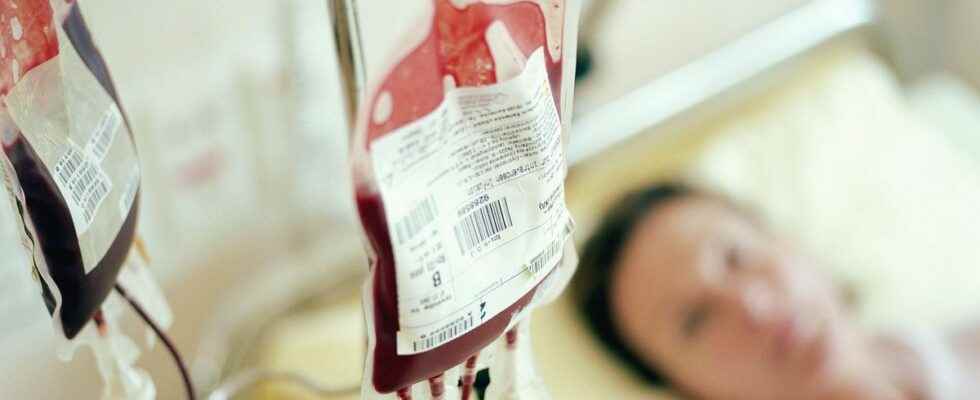Published on
Updated
Reading 2 mins.
in collaboration with
Dr Laure Martinat (Anesthetist-resuscitator, Naturopath, graduate in Phytotherapy and Aromatherapy)
Medical validation:
September 13, 2022

Dr Laure Martinat
Anesthetist-resuscitator, Naturopath, graduate in Phytotherapy and Aromatherapy
For lack of sufficient donations, France (still) lacks blood. To compensate for this lack, the Haute Autorité de Santé has published a series of recommendations aimed at limiting blood transfusions. Dr. Laure Martinat, anesthesiologist-resuscitator, tells us a little more about this.
Blood stocks have rarely been so low. As a result, the High Authority for Health (HAS) issued a series of medical recommendations on Monday to limit blood transfusions.
Replenishing blood supplies is a ‘life-saving’ emergency
In France, as elsewhere in Europe, the various transfusion centers are sorely lacking in blood, even though it saves millions of lives every year.
“During the entire Covid-10 period, the number of blood donations fell. People who used to donate regularly, did not donate or even more. It is a real cultural problem – and recurring – on French territory. “confides Dr. Laure Martinat.
In this context, the French Blood Establishment (EFS) has repeatedly warned of the “vital” emergency represented by the drop in blood stock and has tried, without great success, to encourage the French to donate their blood.
“These recommendations aim to alleviate the shortage of blood and the related risks”several organizations said in a joint statement.
They relate mainly to theblood capital management (pre, per and post operative), also called “patient blood management.
Promoting “rational use” of blood
Concretely, this method allows “avoid (or limit as much as possible) the use of unnecessary transfusione”, but also “to avoid the onset or excessive worsening of anemia, and to improve the management and tolerance of perioperative anemia when it is present” in all adult patients undergoing surgery, notes the HAS.
“As anesthesiologists, we already apply this method, especially with regard to scheduled surgeries. We carry out check-ups and blood tests before surgery, in order to check the hemoglobin level. If the red blood cell threshold n is not satisfactory, we propose a protocol to the patient”explains Dr. Martinat.
An initiative, which is of significant interest for patients, since blood transfusion (from an unknown donor) is not without risk (poor coagulation, hypothermia, etc.).
For Dr Martinat “We must definitely develop this method and make the teams aware of this technique, because it not only makes it possible to prevent risks in the individual but also to constitute, on a national scale, a “blood saving”.
An approach, “already widely deployed in some countries (Australia, Germany), with positive results“, specifies the HAS.
